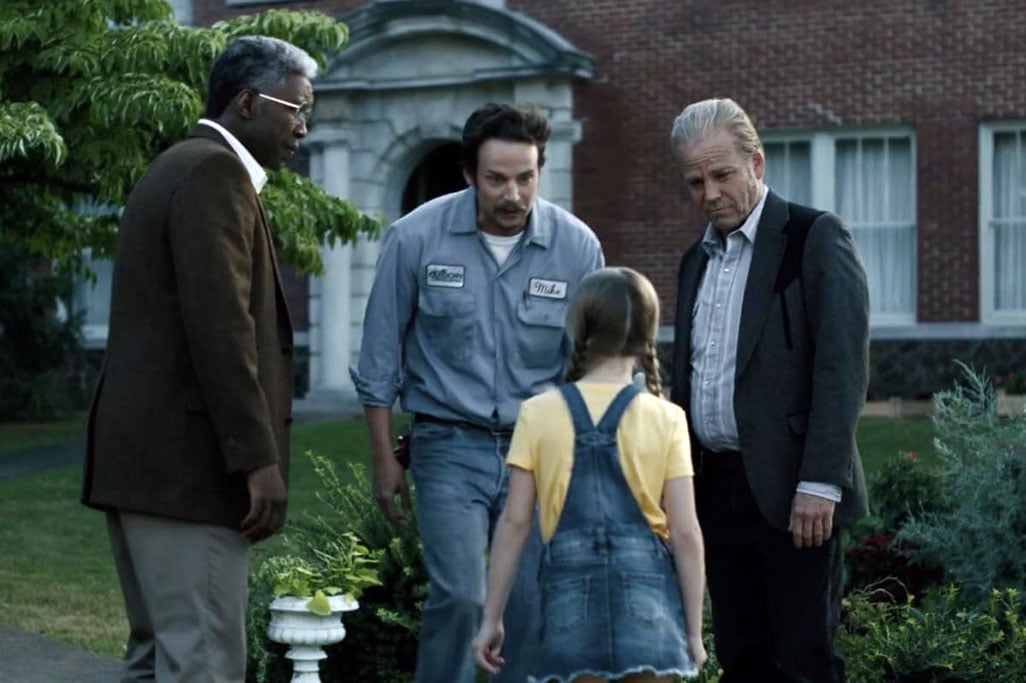 Mahershala Ali, Nathan Wetherington, Ivy Dubreuil and Stephen Dorff stand outside Sequoyah Hall on Mount Sequoyah in Fayetteville during the filming of a scene in HBO’s True Detective Season 3. (HBO)
Mahershala Ali, Nathan Wetherington, Ivy Dubreuil and Stephen Dorff stand outside Sequoyah Hall on Mount Sequoyah in Fayetteville during the filming of a scene in HBO’s True Detective Season 3. (HBO)The Arkansas Legislative Council has approved $5 million in funding for film production rebates in Arkansas.
The funds were directed to the Arkansas Economic Development Commission, where individual film productions will undergo approval, according to a news release from the Arkansas Cinema Society and the Fort Smith International Film Festival.
The funding proposal was presented by State Sen. Jonathan Dismang (R–Beebe) as a temporary measure until the next legislative session, when a more permanent funding source can be established for film incentives in Arkansas.
The film industry not only provides direct employment opportunities but also contributes to local economies through expenditures on accommodation, food, and other services. An increase in tourism, sometimes up to 31%, has been observed in areas used as film locations, further boosting revenue.
The Fayetteville City Council in 2017 agreed to spend $500,000 as part of an incentive package aimed at convincing the producers of HBO’s True Detective to film the show’s third season in the area. An economic impact study later showed a $100 million economic impact on the region and the creation of over 1,000 jobs during the production of the series.
An October report from the Arkansas Economic Development Institute (AEDI) indicated that for every $1 million invested in the film rebate, $4 million returns to the state’s economy. However, employment in Arkansas’s film production sector has seen fluctuations, with a decline from 2010 to 2020 and a recent rebound in 2022 to 260 employees.
Addressing the disparity, Dr. Brandon Goldsmith, executive director of the Fort Smith International Film Festival and director of advocacy for the Arkansas Cinema Society, said it’s important to pair rebate incentives with workforce development programs and a proactive film commission.
“We need the legislature to add career readiness requirements to the incentives, because focusing on creating jobs is how we create a sustainable film industry,” said Goldsmith.
The recently approved funds will be available through June 30, 2024.

